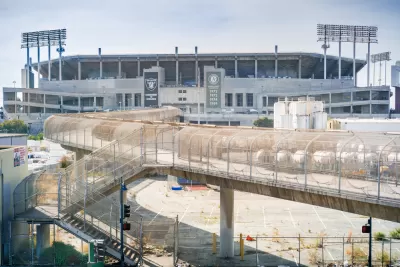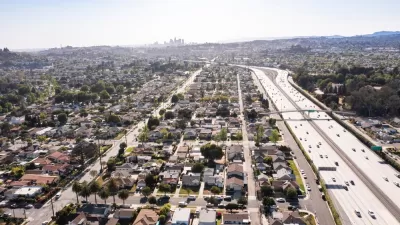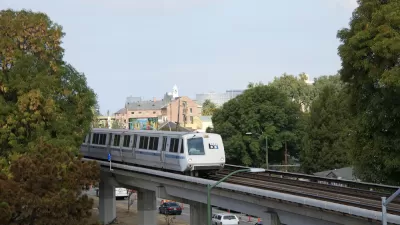One legislator believes CEQA "is a key barrier to California meeting its ambitious climate change goals.”

The idea behind a law proposed by a California assemblyman is to take majors obstacles out of the way of transportation projects that would reduce traffic congestion, and therefore reduce greenhouse gas emissions.
The issue is that the major obstacle in the way of these projects, according to the bill’s author, is the foundation of environmental protection in the state—the California Environmental Quality Act.
[Assemblyman Tim] Grayson says the law can grind to a halt transportation projects that are needed to reduce the amount of cars on the road. His legislation, Assembly Bill 1905, would make it easier for road or transit projects included in a state-approved regional growth plan to begin construction before any CEQA litigation is resolved.
A number of prominent environmental groups oppose the legislation, crediting "CEQA, which took effect in 1970, with preserving California's natural beauty, and argue it is complementary — not contrary — to the more recent climate change laws."
Environmental review in California is notoriously laborious, and this is not the first legislative effort to help projects move through CEQA more easily.
There have also been questions about how well CEQA serves its original purpose; one study found that "unions, business trade associations, rival local government agencies, and even the building industry all use CEQA to gain leverage over some local political process."
Opposition groups say the bill goes "too far."
“For instance, a judge might find that a transportation project's environmental review didn't account for all the effects the development could have on air quality, but under AB 1905 that judge couldn't stop the project because of it, said David Pettit, a senior attorney with the Natural Resources Defense Council. Without the threat of halting construction, agencies won't need to take seriously any subsequent demands to improve the air surrounding the project, he said.”

Planetizen Federal Action Tracker
A weekly monitor of how Trump’s orders and actions are impacting planners and planning in America.

San Francisco's School District Spent $105M To Build Affordable Housing for Teachers — And That's Just the Beginning
SFUSD joins a growing list of school districts using their land holdings to address housing affordability challenges faced by their own employees.

The Tiny, Adorable $7,000 Car Turning Japan Onto EVs
The single seat Mibot charges from a regular plug as quickly as an iPad, and is about half the price of an average EV.

Seattle's Plan for Adopting Driverless Cars
Equity, safety, accessibility and affordability are front of mind as the city prepares for robotaxis and other autonomous vehicles.

As Trump Phases Out FEMA, Is It Time to Flee the Floodplains?
With less federal funding available for disaster relief efforts, the need to relocate at-risk communities is more urgent than ever.

With Protected Lanes, 460% More People Commute by Bike
For those needing more ammo, more data proving what we already knew is here.
Urban Design for Planners 1: Software Tools
This six-course series explores essential urban design concepts using open source software and equips planners with the tools they need to participate fully in the urban design process.
Planning for Universal Design
Learn the tools for implementing Universal Design in planning regulations.
Smith Gee Studio
City of Charlotte
City of Camden Redevelopment Agency
City of Astoria
Transportation Research & Education Center (TREC) at Portland State University
US High Speed Rail Association
City of Camden Redevelopment Agency
Municipality of Princeton (NJ)





























